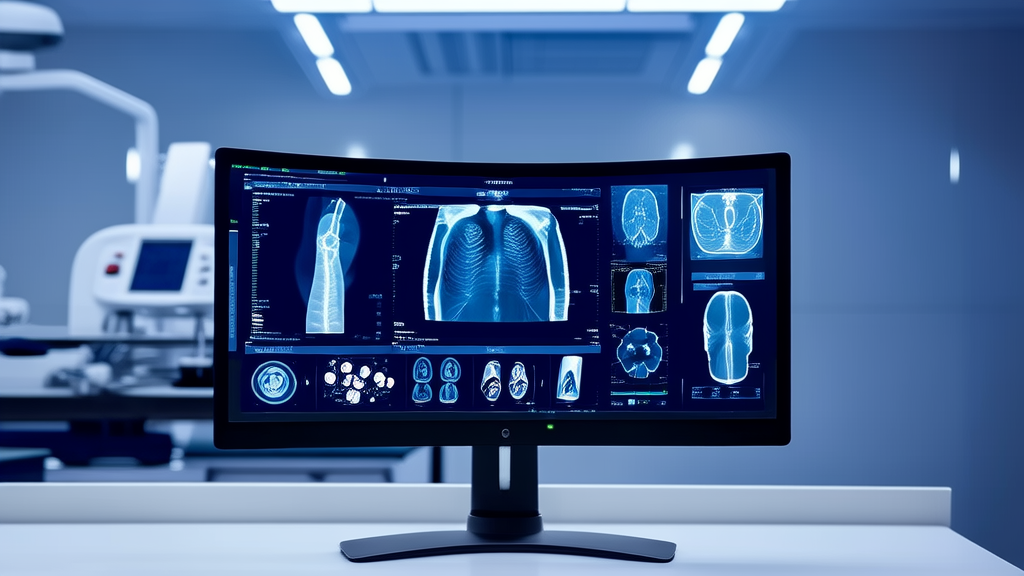🧠 Daily AI & Tech Trends
AI in Healthcare: Saving Lives with 9% Fewer False Negatives in Cancer Detection

The AI Revolution: Transforming Industries and Everyday Life
Artificial Intelligence (AI) is no longer just a buzzword; it's a transformative force reshaping industries and enhancing our daily lives. From healthcare to retail, and from innovative startups to consumer tech, AI is making a tangible impact. In this blog post, we'll explore some of the most compelling real-world applications of AI, focusing on their practical implications and human interest angles.
AI in Healthcare: Saving Lives and Enhancing Patient Care
One of the most impactful areas of AI development is in healthcare, where it is revolutionizing patient care and saving lives. For instance, Google Health's AI model for breast cancer detection has shown a 9% reduction in false negatives and a 5.7% reduction in false positives compared to traditional methods. This means more accurate diagnoses and better outcomes for patients.
Practical Impact: The AI model can analyze mammograms and identify potential signs of cancer that might be missed by human radiologists. This not only improves the accuracy of diagnoses but also reduces the need for unnecessary follow-up tests, leading to cost savings and less stress for patients.
Real-World Example: In a study conducted at Northwestern University, the AI model was tested on over 28,000 mammograms. The results showed that the AI could detect cancers up to 1.2 years earlier than human radiologists, potentially saving countless lives.
Future Implications: As AI continues to evolve, we can expect even more precise and personalized medical treatments. This technology could also be extended to other areas of diagnostics, such as detecting early signs of heart disease or neurological disorders.
AI in Retail: Personalized Shopping Experiences
Retail is another industry where AI is making significant strides, particularly in creating personalized shopping experiences. Companies like Amazon and Alibaba are leveraging AI to provide tailored recommendations, optimize supply chains, and enhance customer service.
Practical Impact: By analyzing vast amounts of data, AI algorithms can predict what products a customer is likely to buy next, leading to increased sales and customer satisfaction. Additionally, AI-powered chatbots and virtual assistants can provide instant support, reducing wait times and improving the overall shopping experience.
Real-World Example: Alibaba's AI-driven recommendation system, which uses machine learning to suggest products based on a user's browsing and purchase history, has been highly successful. During the 2024 Singles' Day shopping event, the system helped drive a 15% increase in sales compared to the previous year.
Future Implications: As AI becomes more sophisticated, we can expect even more seamless and personalized shopping experiences. Virtual try-on technologies, for example, could allow customers to see how clothes or makeup look on them before making a purchase, further enhancing the online shopping experience.
Innovative AI Startups: Solving Real-World Problems
AI is not just the domain of tech giants; innovative startups are also making waves with unique solutions to real-world problems. One such startup is Zipline, which uses AI and drones to deliver medical supplies to remote and underserved areas.
Practical Impact: Zipline's AI-powered logistics system ensures that critical medical supplies, such as blood and vaccines, are delivered quickly and efficiently. This is especially important in regions with poor infrastructure, where traditional delivery methods are often unreliable.
Real-World Example: In Rwanda, Zipline has partnered with the government to deliver medical supplies to hospitals and clinics across the country. Since its launch in 2016, the company has made over 100,000 deliveries, significantly improving access to healthcare in rural areas.
Future Implications: As more startups like Zipline emerge, we can expect to see AI being used to solve a wide range of social and environmental challenges. From disaster response to sustainable agriculture, the potential applications are vast and promising.
Conclusion
From healthcare to retail and beyond, AI is transforming the way we live and work. These real-world applications not only highlight the practical benefits of AI but also underscore its potential to make a positive impact on society. As the technology continues to evolve, we can look forward to even more innovative and impactful solutions that will shape the future of our world.
Published on 2025-06-28T00:00:51.427100